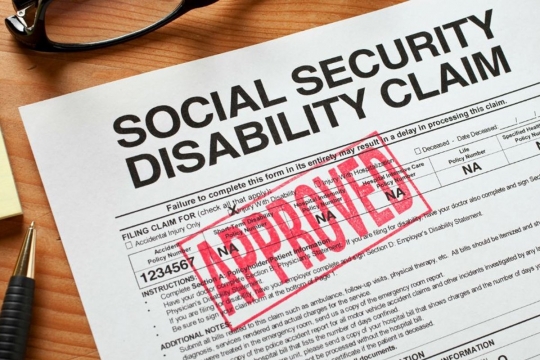
What amount of SSDI can I expect to receive?
This is an understandably common question to be asked by applicants who look likely to receive such benefits. The answer is that the amount of SSDI for which you are approved will hinge on a range of factors, such as how much you paid into the system when working and your other sources of disability income.
The biggest factor dictating the SSDI that you receive is your covered earnings. This is the term for the monetary contributions you have made to the Social Security system, and given that most jobs do pay covered wages, you will have almost certainly paid something.
If you’re unsure whether you have been paying into the system to date, just take a look at your paycheck. It’s likely that a certain proportion of your salary will be stated as having been withheld for Social Security taxes or FICA. The Social Security Administration determines the average amount of income that you have received and paid into the Social Security system down the years by performing a calculation known as the Average Indexed Monthly Earnings, or AIME.
Once Social Security knows what your AIME is, it will apply a formula to this number to work out the primary insurance amount, also known as PIA. This will ascertain exactly how much you are entitled to receive in SSDI payments each month.
What else will – and won’t – affect my SSDI payments?
The decision as to whether or not you are entitled to Social Security Disability Income won’t be affected by your other income sources and whether or not you have assets such as a house. Nor will the severity of your medical condition or disability impact on whether or not you receive SSDI.
Your SSDI benefits also won’t be impacted by any private sources of disability income, such as a private pension or private disability insurance payments. In addition, it’s important to point out that even in the event of a fall in the amount of disability benefit given to you by the federal government, there may be other forms of disability benefit in your state for which you qualify.
Your monthly SSDI income could be reduced, however, by any public disability benefits that you receive, such as local or state government retirement disability benefits, workers’ compensation, military disability benefits, or temporary state disability benefits.
How an attorney can assist you in securing the SSDI you deserve
Plenty of people are aware of the existence of specialist Social Security Disability Income lawyers but may be skeptical as to what difference they could possibly make in helping them to obtain the level of benefit that they are eligible for.
First of all, it’s absolutely true that some people who have previously applied for SSDI on their own have been approved for benefits. However, statistics also show that when all else is equal, the likelihood of a given applicant actually being approved is higher when they are represented by legal counsel.
You are advised to get in touch with Social Security Disability Income lawyers at the earliest possible stage – or in other words, as soon as you start thinking of applying for disability. Many such attorneys are happy to grant you a free consultation and to pore over the details of your case to ascertain just how strong a claim you may have for SSDI.
The great thing about such lawyers is that they are highly skilled in the art of presenting your case to Social Security in the most favorable light. They can help you with the initial application, right through to the hearing stage and beyond.
At every stage, the best-skilled lawyers can be invaluable
When you make an initial application for SSDI, the attorney will be able to advise you on your ‘alleged onset date’ of disability. They will also put forward a convincing argument that your condition complies with one of the listed impairments in Social Security’s ‘blue book’ and help you concentrate on the facts that will be instrumental in persuading Social Security to grant you benefit.
The right Social Security Disability Income lawyers can also play a vital role at the reconsideration and hearing levels, which are most states’ first and second levels of appeal. It is at these stages that a good attorney will be able to collect and submit relevant medical evidence, obtain a doctor’s opinion, draft a detailed brief to the Administrative Law Judge (ALJ) and prepare you for any questions the judge asks at the hearing.
The stages of appeal after this are the Appeals Council and the federal court. Again, an attorney can be greatly helpful here in assembling sophisticated legal arguments that Social Security was wrong to deny your case.
Is now the time to get on the phone to a legal professional?
As we mentioned above, it’s really important to contact Social Security Disability Income lawyers at the earliest possible stage, not least because if you do get approved at the initial application stage as a result of their help, you may only have a small attorney’s fee to pay. Bear in mind, after all, that there aren’t many back benefits owed from Social Security.
In almost every situation as far as SSDI applications are concerned, it’s well worth having a suitably qualified and experienced legal professional by your side, with the benefits – if that’s quite the right word – of accepting expert help generally far outweighing the costs.
Disclaimer: Our service is not intended to be, nor should it be construed as financial advice. We help our readers make informed decisions via impartial information and guides. Where appropriate, we may introduce partner companies who can provide services relating to financial products.